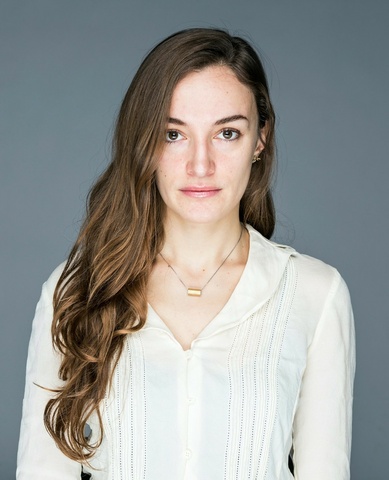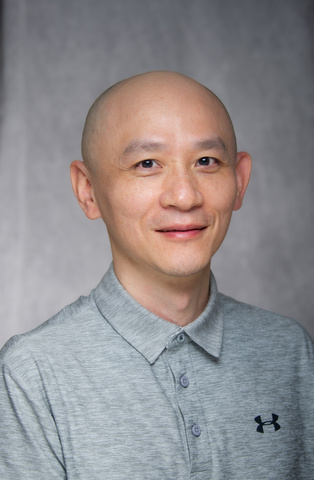By Alice Eberhart
Faculty across all disciplines are conducting interesting and exciting research and projects in the College of Liberal Arts and Sciences. Learn more about the research and work of Jovana Davidovic, Thalassa Raasch, and Yu-Hsiang Wu.
Jovana Davidovic is an associate professor in the Department of Philosophy.
What is the focus of your work?
The focus of my work has always been on the ethics of war, and specifically on questions about discrimination and proportionality in war. Discrimination in war requires that civilians never be targeted. Proportionality requires that when civilian lives are put at risk, unintentionally but foreseeably, that the harm to those civilians not be excessive relative to the military objective. Lately, most if not all of the questions I have been asking throughout my career got complicated by the presence of AI-enabled tools for wartime decision support and AI-enabled weapons.

With the increase in the use of AI in the entire targeting process, the ethical risks that arise in war have shifted and now include questions about the robustness of AI technologies, transparency and explainability of these AI-decision support tools, and responsibility assignments when things go wrong. This is why my most recent work has been focused on asking when and why we need appropriate human control or judgment in wartime decision-making, and how we ought to mitigate ethical risks that arise from the use of AI technology in war, and specifically in the targeting process.
Tell us about the broad impact you’d like it to have.
I believe that applied ethicists such as myself have a responsibility not only to develop appropriate ethical principles and frameworks for whatever field we are working in, but also to make sure that those frameworks are flexible, applicable, understandable, and actionable by those that are meant to use them. This in turn means that I try to translate all my work from principles and frameworks into operationalized toolkits for military decision makers as well as the defense industry. This requires talking to practitioners and jointly developing risk assessment sheets, risk management practices, governance practices, and metrics that can help guide ethically responsible decision making in the development of AI weapons, in procurement of AI weapons, and in the use of AI weapons. I try to do this in my work with the military, both in the U.S. and abroad, as well as with defense industry investors.
What excites you about the environment in CLAS?
There is a growing community of scholars at CLAS working both on issues of war ethics as well as on ethics of AI across a range of departments. One of the more exciting recent developments has been the establishment of the Interdisciplinary Consortium for the Study of War and Genocide, which has brought together scholars from CLAS as well as other schools across the university that work on a range of really difficult and timely issues around war and genocide.
What are your hobbies and pursuits outside of work?
My family and I love hiking, and all things outdoorsy. Durmitor in Montenegro is our favorite hike, but more recently we also got to hike in the Chilean Andes. We also love traveling and we try to spend as much time as we can with my family in Serbia. I am also a fan of baking, and I bake often. More recently, I have really gotten into soccer, and Chelsea FC is my team, so I try to watch all their games on the weekends.
Any favorite things to do in Iowa City?
There are some great hikes around Iowa City, including Turkey Creek, Big Grove and Cangleska Wakan, and further out Whitewater Canyon and Backbone. Both of our kids go to schools in ICCSD and the shows, concerts, exhibits, festivals, and sporting events that the kids, parents, and teachers in ICCSD put on are often the highlights of our weeks and months.
Thalassa Raasch is an assistant professor in the School of Art, Art History, and Design.
What is the focus of your work?
My creative research is interdisciplinary and has evolved around topics of grief and alternate sensory experiences. Though I often incorporate elements of installation, printmaking, and sculpture, my work consistently centers on the use of lens-based media (photography and video).

Right now, I am in the research and development stage of a new project titled Siren. It draws on my own gendered experience growing up in the Midwest and singing in choirs most of my life. It also responds to the recent legislation of the region (and the nation) that threatens the safety of my body and those of so many others. I am developing an experimental musical score, researching the etymology of “siren” (from Greek mythology to tornado warning systems), visiting local choirs and singing communities, and planning to host conversations with womxn about the intersectional legacy of femme voices in expressions of resistance and joy.
The ambition of Siren is to collaborate with womxn singers from a range of Iowa-based singing traditions, and to create a final piece that will exist in two iterations: it will exist as an ephemeral and responsive live performance, and it will exist as an immersive multi-channel audio-video installation. Siren will investigate what it means to sound an emergency, using the power of voice as an instrument of change.
Tell us about the broad impact you’d like it to have.
I am eager to make creative work alongside an intergenerational group of womxn living in Iowa. I hope that this work will bring together folx – in Iowa and beyond – to share experiences, ask questions, and consider anew the potential of femme voices. Siren also has the ability to exist in non-traditional art spaces and I look forward to seeing how the work can adapt and respond to new environments and communities.
What excites you about the environment in CLAS?
I deeply believe in the collaborative academic structure within the College of Liberal Arts & Sciences. This is informed by my own experience as an undergraduate student whose studies were enriched by a liberal arts education. And now as a faculty member, my own practice as a researcher and educator is strengthened by the interdisciplinary dialogue that is fostered and encouraged in CLAS. That said, what truly excites and inspires me the most is working alongside so many bright and generous colleagues (both faculty and staff).
What are your hobbies and pursuits outside of work?
I’ve been learning to sew and dye my own fabric using foraged materials and food scraps. Right now, I’m piecing together a quilt that showcases the range of beautiful earth tones made using acorns, onion skins, goldenrod, avocado pits, and more.
Any favorite things to do in Iowa City?
Anything that gets me outside – I love walking with friends in Hickory Hill Park and Turkey Creek Nature Preserve (in Solon). And I delight at the migrating birds that pass through every year; I’ve been thrilled to see trumpeter swans flying north in the spring and, during my first year in IC, white pelicans covered the Iowa River from the art buildings down to the Dairy Queen.
Yu-Hsiang Wu is a professor in the Department of Communication Sciences and Disorders.
What is the focus of your work?
My work centers on the impact of hearing interventions, which include hearing aids and cochlear implants, on people’s quality of life. Therefore, my long-term research goal is to improve hearing healthcare outcomes for older adults with hearing loss by identifying factors and methods that can facilitate intervention success.

Tell us about the broad impact you’d like it to have.
Hearing loss is a public health concern, affecting approximately 44 million American adults in 2020, with projections rising to 74 million by 2060. Untreated hearing loss impacts well-being and imposes a global economic burden estimated at $980 billion. Hearing aids and cochlear implants can improve communication, social and emotional functioning, and quality of life, and may even reduce cognitive decline. However, adoption rates for these devices remain low, and some individuals benefit from them less than others. Through my research, I aim to advance hearing aid and cochlear implant technologies, improve hearing healthcare services, and make these services more affordable and accessible. I hope my research has a broad impact, improving the quality of life for individuals with hearing loss.
What excites you about the environment in CLAS?
What excites me most about CLAS is its multidisciplinary environment—something that applies broadly across the University of Iowa as well. Over the past decade, I have collaborated with researchers from various disciplines in CLAS and the university, including computer science (Dr. Octav Chipara), otolaryngology (Drs. Bruce Gantz and Camille Dunn), psychology (Drs. Bob McMurray and Paul Windschitl), psychiatry (Drs. Karin Hoth, Kristen Caraher, and David Moser), neurology (Dr. Matthew Rizzo), and biostatistics (Dr. Jacob Oleson).
Whenever I need expertise in another field, I can always find someone in CLAS who is eager to help. Establishing collaborations is remarkably easy here. For example, when I was preparing my recently funded NIH R01 grant proposal, I realized we needed an expert in decision-making. A quick search of the university website led me to Dr. Windschitl in the Department of Psychological and Brain Sciences. I emailed him to invite him to join the team, and he readily agreed. It just took us one email exchange. Since then, we have collaborated on the R01 grant and several other projects. This supportive and collaborative environment is what I love about CLAS.
What are your hobbies and pursuits outside of work?
I build scale models—airplanes, ships, tanks, and robots. It’s a hobby I’ve loved since childhood, though I had to put it aside during college due to lack of time. I picked it back up a few years ago. To me, building scale models is incredibly satisfying and relaxing. I especially enjoy working on it in the winter when I can stay warm and cozy at home, focused on my latest project.
Any favorite things to do in Iowa City?
Fishing—I really enjoy bass fishing! It’s something I took up after moving to the U.S. I often go to Kent Park, especially in the late evening or at night when most people have left. There’s something special about finishing up alone at night; it feels like I have the lake and park all to myself.